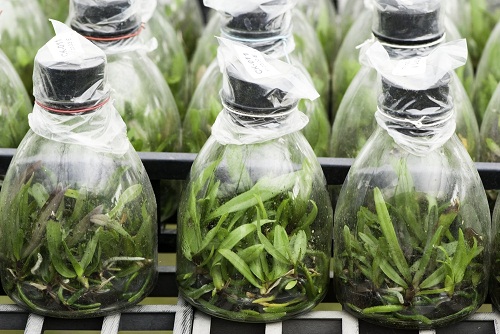
Nothing feels better than digging in the dirt and producing something edible, aromatic, and delicious. Planting an herb garden is a great way to enjoy the delights of a garden without having to have a huge yard or a big commitment. Using recycled materials to get started with your herb garden will make it less expensive, and you can feel good about not adding trash to the landfills.
Make Creative Containers
Almost anything can become a container for an herb garden. Just pick the right size and style for the particular herb you want to plant while ensuring that it is also the right material. You don’t want anything that might leach poisons into your food. Also, it’s important to have good drainage holes if your container keeps in moisture well. Once you find something appropriate you can decorate it with safe paint and stencils. Old cans, formula containers, tires, and more can become perfect containers for herb gardens. And remember, your containers can hang, or sit, so let your imagination flow.
Reuse the Unexpected
Did you know that you can use old coffee grounds and egg shells to help your herb garden grow better? Well now you do. Grind dry egg shells up and place in the dirt to add sulfur, calcium and more to the soil. Not only does it add nutrition to the soil, it will keep snails away if you leave some of the shells bigger with sharp edges. You can also simply add them to your compost bin to up the sulfur and calcium carbonate and to balance acidic soil. To use coffee grounds you can sprinkle on areas that are outdoors that tend to attract cats. It will repel them. It even works inside to stop your indoor cats from messing with your plants.
Grow with Scraps
Another winning garden idea is to save money by growing from scraps instead of buying seeds. One of the easiest to grow from scraps is the green onion. You only heed to use one of the white ends submerged in water with a bit of the top part coming out. Place it in the window and soon it will grow roots and finally the green top will grow back. You can keep it growing in water that you change periodically, on your window sill and harvest the greens as you need them. They’ll grow back again and again. You can grow other plants from scraps too; some will need to be planted in soil after roots have developed. Ginger, carrot tops, celery, scallions, fennel, leeks, lemongrass, garlic, and onions can be grown from scraps.
When planning your herb garden it’s important to keep in mind what herbs you actually like to use versus which ones you don’t like. If you plant a herb garden that you know you’ll use, it’ll be easier to keep it up. Sit down and plan out your herb garden by looking over recipes that you use normally, then choose the herbs that you typically use that are simple to grow. Look at garden ideas often to boost your creativity when you want to try something new, never forgetting that something old can become something new.

